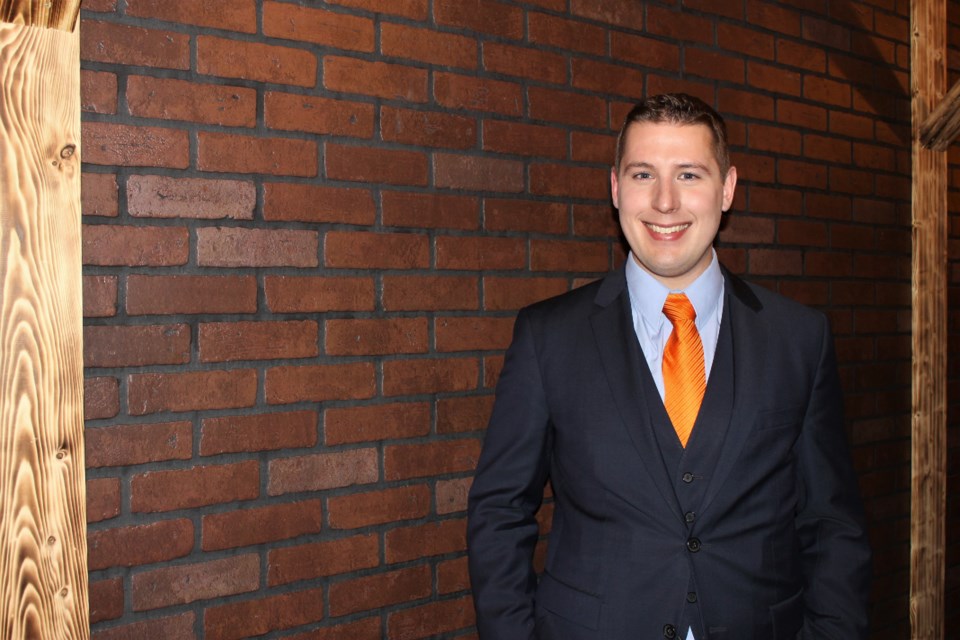MOOSEJAWTODAY.COM — Talon Regent, owner of Regent Law in Moose Jaw, used Virtual Reality (VR) technology to sign documents for the purchase and sale of physical land — for the first time ever.
“I did a fairly thorough search to try and make sure I wasn’t taking credit where credit wasn’t due,” Regent said in an interview with MooseJawToday.com. “I could not find a record of anyone else ever having done it.”
The real estate transaction was for the purchase and sale of a residential home in Moose Jaw. Regent purchased the property from Century 21 realtor Laura Fehr.
Regent is He hopes to attract customers by advertising the convenience of digital transactions.
However, taking the next step from digital transaction to virtual involved a little more work.
“I was already familiar with how to use virtual reality technology, including the program we use that’s shown in the video,” Regent explained. “But the realtor, Laura Fehr, who helped me out, … I had to teach her how to use the VR system. Then there were logistical complications with filming, because we required an additional headset.”
VR uses a headset to take up the user’s entire field of view, with integrated headphones for sound immersion. Handheld controllers track hand and arm movements while sensors track the headset motion around the room.
This enables users who may be on opposite sides of the planet to feel like they’re sharing a space. Their perspective is first-person, however, so recording two people requires a third.
“Even though we didn’t leave our physical spaces,” Regent said, “we were basically filming in two different settings, one in the virtual world and one in the physical world. The film team that we had come out from Tandem X Visuals in Regina had a lot of fun filming in VR.”
“In the video, when you see both Laura and I sitting at the desk, you see that through the lens of a third headset.”
Physical and virtual land have both been on the market for decades, Regent said, but the adoption of modern signing techniques has been especially slow for physical land transactions. Securing and verifying such transactions is, in a sense, more important than the transaction itself, so governments have been cautious about digital or e-signing.
“The legal requirements for digital signatures are complied with in that video,” Regent said. “The offer to purchase that was signed in virtual reality is in compliance with The Electronic Information and Documents Act (2000).
“Where the law does not allow for a signature in virtual reality is for documents governed under The Land Titles Act. The current Saskatchewan registrar does not allow for that.”
Regent said he’s not planning on fully integrating VR into his business anytime soon. The video is a proof-of-concept project. VR technology is not yet widespread enough to make it practical.
Nevertheless, he said, it’s important for technology-minded entrepreneurs to take these types of steps to inspire people’s imaginations.
“Virtual reality is for much more than gaming. It’s a new medium, akin to radio, television, computers, the internet. It is a new step in the technological ability to interact with each other.
“It’s for video gaming, it’s for conferences, it’s for business purposes. There are going to be opportunities for social interaction, medicine, architectural design, a new medium for art. The list goes on — the possibilities for virtual reality are nearly endless.”




